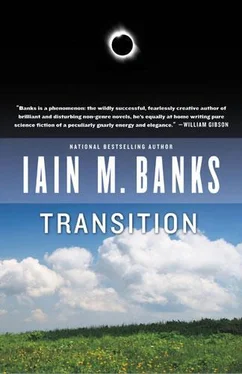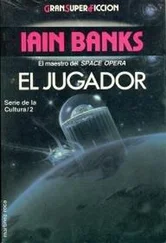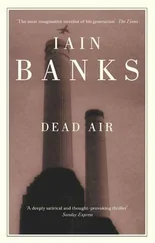The specifics will claim me one day; the details always deliver in the end.
There are as many types of capitalism as there are types of socialism – or any other ism for that matter – but one of the major differences – a major difference founded on what appears to be a minor detail – between whole bundles of ostensibly fully capitalist societies centres (indeed, depends) on whether commerce is governed by private firms and partnerships, or by limited companies.
I’d lie if I claimed I possessed any congenital interest in economics, but – from what I’ve gathered over the years – the invention and acceptance of the limited company means people can take big risks with money not their own and then – if it all goes wrong – lets them just walk away from the resulting debts, because the company is somehow regarded as being like a person in its own right, so that its debts die with it (not the sort of fairy story a partnership is allowed to get away with).
It’s a piece of nonsense, really, and I used to wonder that legislatures anywhere bought into this blatant fantasy and agreed to give it legal house room. But that was just me being naive, before I realised that there was a reason why it always dawned on all those ambitious, powerful gents in all those various legislatures that this ludicrous hooey might actually be quite a good idea.
Anyway, limited company worlds often progress faster than other types, but always less smoothly and reliably, and sometimes disastrously. I’ve looked into it and frankly it just isn’t worth it, but you can’t tell that to anyone caught up within the seductive madness of the dream; they have the faith, and are forever relieved by the invisible hand.
I kick the case of Coca-Cola aside, letting the freezer door thud closed.
There is a generously sized kitchen in the Palazzo. It also has no electricity, of course, and no other sort of power I can get to work, but it does have drawers full of cutlery and cupboards full of tin cans. I eat cold peas by candlelight.
As I begin to relax, I discover a need to know how many peas are on the spoon I am eating with. Oh dear. I thought I’d shaken that weakness off.
I try to ignore this absurd compulsion and just keep on eating, but it is as though there is an elastic band joining the plate and the spoon, or a membrane in front of my face, physically preventing me from bringing the spoon to my mouth. Preposterous as it may be, it is actually easier to give in and count the peas. I cannot arrive at an accurate figure just staring at the slowly collapsing pile on the spoon, of course (though I’m sure an estimate would be pretty close to the final figure), so I have to spoon the load onto the plate and count them there. In the dim glow of the single candle, this is harder than it sounds. I have to sort them into files of five to ensure accuracy. Having arrived at a figure it proves impossible to pick all the peas up again. I push them back into the mass of peas on the plate and take up another spoonful. That first spoonful was a pretty typical one, I reckon. This one poised before me now is also pretty typical, so ought to have the same number of peas.
But does it? I am growing annoyed at myself and my stomach is growling at me, still mostly empty, but I need to know. Was that first spoonful typical? Did I arrive at a reliable number before? I let this latest sample slide onto the side of the plate and count them as well. Slightly more than the first spoonful. I take an average of the two. Though even as I do this I realise that two just seems an inadequate number. One more sample ought to do it. Three is the number required for triangulation, after all.
There, this third spoonful contains a number in between the first two spoonfuls; a straddle, a sure sign that we are zeroing in on the right number. I decide to take no more nonsense from myself and just eat this spoonful. This works and I am able to sit back again. I sigh through my nose as my teeth and tongue quickly convert the mass of peas into a single lump of paste inside my mouth. I swallow and sit forward, scooping up the next mouthful of piselli picolli. On the table the candle flame flickers, as though shivering.
I stop and let the spoon fall back into the plate. I stare at the candle, remembering.
And then, suddenly, I was not merely remembering. I was-
I watched her move her hand above the lit candle, through the yellow flame, fingers spread fluttering through the incandescing gas, her unharmed flesh ruffling the very burning of it. The flame bent this way and that, guttered, sent curls of sooty smoke towards the dim ceiling of the room where we sat as she moved her hand slowly back and forth through the gauzy teardrop of flame.
She said, “No, I see consciousness as a matter of focus. It’s like a magnifying glass concentrating rays of light on a point on a surface until it bursts into flame. The flame is consciousness; it is the focusing of reality that creates that self-awareness.” She looked up at me. “Do you see?”
I stared at her.
I was here, here with her, in this place, right now.
This was not a memory, not a flashback. Certainly we had taken drugs and we were still at this point under their influence, but this was definitely not some addled consequence of their effects. This was startlingly immediate and unquestionably vivid. Real, in a word.
She put her head to one side a little, flexed an eyebrow. “Tem?” she said softly. “Are you listening?”
“I’m listening,” I said.
“You look distracted,” she told me. She pulled the sheet that was all she wore a little tighter about her, as though she was cold. She took a breath, went to speak.
I said, “There is no intelligence without context.”
Her brows flicked momentarily into a tremulous frown.
“That’s what-” Still frowning, she sat back, removing her hand from the candle flame; it curled out after her fingers in a long flexing trail of glowing yellow, as though reluctant to let go of her. “Have I said this to you before?” she asked.
“Not really,” I said, watching the candle flame restore itself. “Not as… No.”
She looked at me with what could have been either suspicion or bafflement. “Hmm,” she said. “Well, it’s like a magnifying glass, and the partial shadow it casts around its focus. The halo of reduced light around the bright spot at its centre is the debt required to produce that central concentration. In the same way, meaning is sucked out of our surroundings and concentrated in ourselves, in and by our minds.”
(Her hair-)
Her hair, a brown-red spill of curls across her shoulders and along her slender neck, formed a quiet nimbus around her canted head. Her deep orange-brown eyes looked almost black, reflecting the poised stillness of the candle’s flame like some image of the consciousness she had been talking about. They looked perfectly still and steady. I could see the minuscule spark of the flame reflected in them, unwavering, constant, alive. She blinked slowly, languorously.
I recalled recalling that the eyes only see by moving: we can fasten our gaze on something and stare intently at it only because our eyes are constantly consumed with dozens of tiny involuntary movements each second. Hold something perfectly and genuinely still in our field of vision and that very fixity makes it disappear.
“I love you,” I said.
She sat forward suddenly. “ What?”
The word, so emphatically pronounced, was enough to blow out the candle’s little flame and plunge the room into darkness.
The candle sitting on the table in front of me, here in the kitchen of the Palazzo Chirezzia, blows out, caught in a sudden draught I can feel on my face, bringing a chill that lifts the hairs on the back of my neck. The spoonful of cold peas I was about to eat remains poised halfway to my mouth, exactly where it was the instant before I relived, replayed and changed those moments from a room a dozen years and an infinitude of worlds away. But I thought the spoon fell-
Читать дальше












